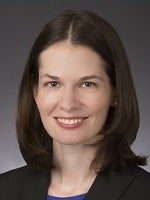In a highly anticipated opinion in the AseraCare case, issued on September 9, 2019, the Eleventh Circuit Court of Appeals affirmed the district court’s holding that “a clinical judgment of terminal illness warranting hospice benefits under Medicare cannot be deemed false, for the purposes of the False Claims Act, when there is only a reasonable disagreement between medical experts as to the accuracy of their conclusion, with no other evidence to prove the falsity of the assessment.” U.S. v. AseraCare, Inc., No. 16-13004, at *3 (Sept. 9, 2019 11th Cir.) (“Op.”). Although the Court remanded the case to the district court to consider any such “other evidence” the Government might identify in the record, it also made clear that such evidence would need to “link” to specific claims submitted for payment, creating a substantial practical impediment to the Government’s ability to prove falsity in this and similar cases. See Op. at 56.
The District Court Saga
First filed in 2008 by three former AseraCare employees acting as qui tam relators, the AseraCare case experienced a long and convoluted journey through the district court. The district court denied AseraCare’s first motion for summary judgment, declining to adopt AseraCare’s suggestion that its claims for payment could not be false if a reasonable physician could have held the opinion that the patients were eligible for hospice. The district court further found that there were factual questions as to whether clinical documentation in AseraCare’s patient medical records supported physician certifications. The district court certified to the Eleventh Circuit for interlocutory review the question of whether a “reasonable physician” standard was appropriate, but the Eleventh Circuit declined to opine.
Next, and over the Government’s objections, the district court granted AseraCare’s motion to bifurcate the trial, with an initial trial phase on only the ‘falsity’ element of the alleged FCA violations, and – should falsity be proved – a second phase on additional elements. The Court’s goal in bifurcating the trial was to avoid confusing the jury’s analysis of the alleged falsity of AseraCare’s claims for payment, which “cannot be inferred by reference to AseraCare’s general corporate practices unrelated to specific patients” – practices that the Court determined might be relevant to AseraCare’s knowledge of a scheme to submit false claims. Op. at 15.
After an eight-week trial on falsity, the jury verdict came out largely against AseraCare, finding that 104 out of 123 patients at issue had not been eligible for hospice care during the relevant time periods. The district court, however, determined that it had articulated the wrong legal standard in instructing the jury; specifically, it had failed to acknowledge that falsity requires proof of an objective falsehood, and that a mere difference of opinion between physicians, without more, is not enough to show falsity. The district court sua sponte considered summary judgment under this correct legal standard and granted summary judgment to AseraCare, finding that “the Government has failed to point the court to any admissible evidence to prove falsity other than [its expert’s] opinion that the medical records for the 123 patients at issue did not support the Certification of Terminal Illness”, such that there was “no evidence of an objective falsehood for any of the patients at issue.” Op. at 24.
The Eleventh Circuit Weighs In
On appeal, the Eleventh Circuit agreed with the district court that a “claim cannot be ‘false’ – and thus cannot trigger FCA liability – if the underlying clinical judgment does not reflect an objective falsehood.” Op. at 38. The court identified circumstances under which a physician’s certification might be objectively false – for instance, where the physician did not review a patient’s medical record, where the physician did not subjectively believe the clinical judgment to which he or she was certifying, or where no reasonable physician could have believed the certified clinical judgment. However, “a reasonable difference of opinion among physicians reviewing medical documentation ex post is not sufficient on its own to suggest that those judgments – or any claims based on them – are false under the FCA. A properly formed and sincerely held clinical judgment is not untrue even if a different physician later contends that the judgment is wrong.” Op. at 38-39. Therefore, to show falsity, a plaintiff “must identify facts and circumstances surrounding the patient’s certification that are inconsistent with the proper exercise of a physician’s clinical judgment.” Op. at 39.
The Court agreed with the Government, however, that because much record evidence was excluded from phase one of the trial, the Government had not had sufficient opportunity to identify such facts and circumstances as demonstrating the falsity of AseraCare’s claims for payment; instead, “the district court should have considered all the evidence, both in the trial record and the summary judgment record, to determine whether a triable issue existed regarding falsity.” Op. at 51. The Court therefore remanded the case to the district court to consider such evidence. However, the Court noted that “[h]aving given the Government the green light to once again try to persuade the district court that a triable issue exists on both falsity and knowledge…we do not know that this effort will succeed.” In particular, while “evidence suggests that AseraCare’s certification procedures were seriously flawed…on remand the Government must be able to link this evidence of improper certification practices to the specific 123 claims at issue in this case” because “[s]uch linkage is necessary to demonstrate both falsehood and knowledge.” Op. at 55-56.
An Evidentiary Hurdle in Clinical Judgment Cases
This final observation by the Court is likely to create serious obstacles for the Government and whistleblowers, both in this case and others. Outside of medical record evidence – about which differences of opinion cannot create falsity as a matter of law – evidence of objective falsehood very often does not relate to a particular claim for payment. For instance, a witness’ observations or communications about the general behavior or practices of certifying physicians will not typically be capable of linkage to particular claims for payment. And, although the Court’s decision is specific to certifications of eligibility for hospice services, the Court’s reasoning about the types of evidence that can prove objective falsity should have much broader implications for many other FCA cases that depend on expert testimony related to certifications of medical necessity and other clinical determinations. With respect to cases that would otherwise turn heavily on dueling expert testimony, the Government and whistleblowers may face often insurmountable challenges to identifying other, claim-specific evidence demonstrating the objective falsehood of a clinician’s certification of medical necessity.



 />i
/>i

